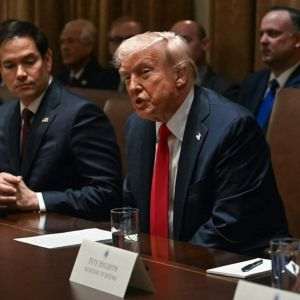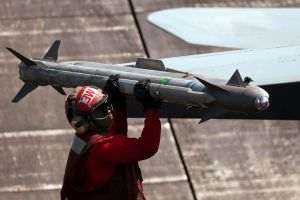Romania could be flooded by speculative capital, Mugur Isărescu, the governor of the NBR said last week. He stated: "We will try to discourage excessive volatility of the exchange rate through other unorthodox steps, but at the same time it is very important to ensure the competitiveness of Romanian products".
Adrian Vasilescu, advisor to the NBR governor, said that Romania could once again see capital inflows, since the country"s economic reports are favorable. "Capital inflows are a good thing, in particular those coming in for the long term, which would stay in the country for a longer time and which would bring in direct investments", said Adrian Vasilescu. He added that excessive control of capital inflows is not a solution, because they are always able to find their way towards their destination. Instead, the solution is to have a well prepared, restructured economy, that is able to absorb foreign capitals.
Furthermore, Adrian Vasilescu said that the unorthodox measures to discourage the volatility of the exchange rate, that Mugur Isărescu mentioned, could be rules that would temper an excessive boost in lending by banks or high levels of the minimum forex mandatory reserves.
• Analysts: Inflows of speculative capital will be modest in size
Analysts don"t share the opinion of the governor of the Central Bank, in fact, they maintain that when dealing with an open economy, it is normal to have flows of speculative capital. They consider that the size of speculative capital that could potentially enter Romania might not be as big as they were in the previous years.
Furthermore, some analysts consider that the entry of speculative capital is not a cause for concern, what is more important is how the money will be used, to avoid wasting it.
Florin Cîţu, economic analyst, considers that the message of the governor is that the leu will be under pressure, which could lead to a potential strengthening.
He said that the signs of the entry of speculative capital are represented by the fact foreigners in developed regions are looking for better returns abroad. Florin Cîţu added that the situation is similar to that of Brazil, Turkey or Asia, where inflation and returns are high. According to him, foreigners investing in Romania go for six-month bonds.
Florin Cîţu considers that the entry of speculative capital is not a cause for concern, what is important instead is to know what to do with the money, to make sure the opportunity isn"t wasted. "In the past, Romania didn"t know what to do with its equity and this led to a high current account deficit", he said.
Speculative money could be invested in culture, technology or infrastructure, according to the economic analyst.
• Florian Libocor: Inflows of speculative capital should be discouraged
Florian Libocor, the chief economist of BRD, said that inflows of capital are affecting the economy and for that reason they should be discouraged.
He said: "Speculative capital generate imbalances almost by default. The leu can appreciate in an artificial manner, exports can be affected, the payment balance can become unsettled. Moreover, in the first stage, we can observe high capital inflows, but which do not result in true economic activities of production, and which do not create jobs or orders. These capitals enter the economy strictly in order to speculate a context that is favorable to the interests of those who manage them. They don"t have any connection to the economy that they enter, rather the opposite. These capitals can not be directed towards any productive economic sector. Inflows of speculative capital need to be discouraged, which is not easy to do."
However, Florian Libocor thinks that the NBR has the technical ability and the necessary tools to manage well this type of situations.
On the other hand, economic analyst Lucian Isar, is not as confident when it comes to the forecasts of the Central Bank. He said: "Whereas in the beginning of the year we were being cautioned against a potential drought, we are now being warned against a flood of funding. In terms of forecasts, the Central Bank has repeatedly proved inaccurate, and the frequent changes of opinions just emphasize its lack of capabilities in this segment."
Lucian Isar added that he doesn"t believe capital inflows to reach the levels of 2006-2008: "Short term capital inflows have been happening since the beginning of the year, and are therefore nothing new. They are not and will not become as big as they were in the period between 2006 and 2008, so the attempts to induce anxiety are just as realistic as the warnings over a drought of funds that we were threatened with in the beginning of the year."
In his opinion, short term capitals can follow many paths, as proven by the various emerging economies - Turkey, Brazil, Chile. Lucian Isar added that the inflows of capital, intended for investments only appear to the extent where the economic policies (monetary and fiscal) signal an encouragement of economic growth and not just a reductionist austerity measures.
• Lucian Anghel: Speculative capitals are an ingredient of the open economy
Economic growth represents a factor of attraction for investors, as well as for speculators.
Lucian Anghel, chief economist with the Romanian Commercial Bank, said that once economic growth and good forecasts appear, they are inevitably followed by speculative capitals.
In his opinion, the message of the governor shouldn"t be construed as a warning: "There is no problem if speculative capitals start entering the country. They are permanent, they can"t be stopped. They are an ingredient of the open economy and it is impossible not to get hit with them."
Furthermore, Lucian Anghel considers that so far, the NBR did a good job in fighting against speculative capital, in a small and open economy.
Nicolaie Chidesciuc, the chief economist of ING Bank, said that capital inflows are modest in size and are no match for those that we had in the 2005-2006 period. In his opinion, not even in the following years will there be any major speculative inflows. The pressure that speculative capitals will exert on monetary policies will not be as severe as it was a few years ago.
Nicolaie Chidesciuc said: "Capital inflows are so small that they are not even worth mentioning. They are focused on the short term, they are volatiles, they come in, they come out. In the near future , the pace of capital inflows will be slow."
The chief economist of ING Bank considers that capital inflows may increase, but they are connected to the situation of those that invest the funds in the country in question.
He said: "In the Eurozone, things will not improve. Most investors have many issues and investing in Romania is not exactly at the top of their agenda."
Mugur Isărescu said last week: "It is very likely that we will enter a new period, one where Romania will see massive capital inflows, with ups and downs. The worsening of the difficult situation in Greece may alleviate this phenomenon. However, I do believe that in the medium term, it is inevitable that we will have a period of greater capital inflows. We will of course try to alleviate the volatility of the exchange rate, but this isn"t a < must >."
He added that the Central bank should not convey the wrong message on what it can do to influence the evolution of the exchange rate.
The Governor of the Central Bank said: "We already have a surplus of international reserves and creating liquidity through direct interventions is an illusion, no central bank can do that. We will try to discourage the excessive volatility of the exchange rate, by using other unorthodox methods, but we are also saying that it is very important to ensure the competitiveness of Romanian products, not just through pricing, but also through productivity, low production costs, adequate promotion, the opening of new export markets. Structural reforms are essential in this regard".
The NBR governor said that the economy had gotten used to large capital inflows, which amounted to about 4 billion Euros in 2004, and averaged 16 billion Euros between 2005 and 2008.

























































